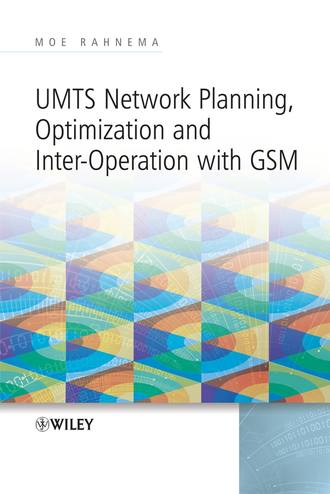
Полная версия
UMTS Network Planning, Optimization, and Inter-Operation with GSM
UMTS Network Planning, Optimization, and Inter-Operation with GSM is an accessible, one-stop reference to help engineers effectively reduce the time and costs involved in UMTS deployment and optimization. Rahnema includes detailed coverage from both a theoretical and practical perspective on the planning and optimization aspects of UMTS, and a number of other new techniques to help operators get the most out of their networks. Provides an end-to-end perspective, from network design to optimization Incorporates the hands-on experiences of numerous researchers Single authorship allows for strong coherency and accessibility Details the complete iteration cycle of radio link budgeting for coverage planning and dimensioning Rahnema demonstrates detailed formulation of radio capacity and coverage in UMTS, and discusses the tradeoffs involved. He presents complete link budgeting and iterative simulations for capacity and coverage planning, along with practical guidelines. UMTS Network Planning contains seventeen cohesive and well-organized chapters which cover numerous topics, including: Radio channel structures, radio channel models, parameters, model tuning Techniques for capacity and coverage enhancements Complete treatment of power control, handoffs and radio resource practical management processes and parameters Detailed coverage of TCP protocol enhancement for operation over wireless links, particularly UMTS Application of GSM measurements to plan and re-engineer for UMTS radio sites Guidelines for site co-location with GSM, the QOS classes, parameters and inter-workings in UMTS AMR voice codecs and tradeoffs, core and access network design, architectural evolution, and protocols Comprehensive discussion and presentation of practical techniques for radio performance analysis, trending, and troubleshooting Perfect for professionals in the field and researchers specializing in network enhancement. Engineers working on other air interfaces and next generation technologies will find many of the techniques introduced helpful in designing and deploying future wireless networks as well. Students and professionals new to the wireless field will also find this book to be a good foundation in network planning, performance analysis, and optimization.


